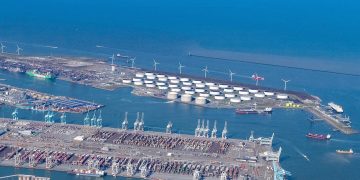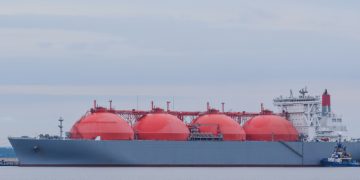The St. Vincent and the Grenadines Maritime Administration has provided an overview of the new requirements for the Mediterranean Sea, Red Sea, and Gulf of Aden Emission Control Areas (ECAs), with a particular focus on sulfur emissions, oil discharge, and garbage disposal regulations.
An ECA is a designated marine area where stricter regulations are enforced to reduce air pollution from ships. These regulations focus on limiting the emission of pollutants such as sulfur oxides (SOx), nitrogen oxides (NOx), and particulate matter, which contribute to environmental damage.
As of May 1, 2025, the Mediterranean Sea will become an Emission Control Area (ECA) for sulphur oxides (SOx) under MARPOL Annex VI Regulation 14. Additionally, starting January 1, 2025, the Red Sea and the Gulf of Aden ware designated as special areas under MARPOL Annexes I and V. All vessels subject to MARPOL Annex VI and operating within the Mediterranean Sea SOx ECA shall, as of 1 May 2025, either:
-
Use fuel oils with a sulphur content not exceeding 0.10% m/m in accordance with Regulation 14 of MARPOL Annex VI, or
-
Employ alternative emission reduction technologies to achieve equivalent compliance.
Discharge of oil or oily mixtures – MARPOL Annex I (Effective 1 January 2025)
For all vessels of 400 gross tonnage and above, the discharge of oil or oily mixtures into the sea shall be prohibited within the Red Sea and Gulf of Aden Special Areas unless all of the following conditions are met:
-
The ship is en route;
-
The oily mixture is processed through oil filtering equipment in compliance with Regulation 14.7 of MARPOL Annex I;
-
The oil content of the effluent without dilution does not exceed 15 ppm;
-
The oily mixture does not originate from cargo pump room bilges on oil tankers; and
-
In the case of oil tankers, the oily mixture is not mixed with cargo oil residues.
Discharge from oil tankers – cargo area (Effective 1 January 2025)
For oil tankers, any discharge of oil or oily mixtures from the cargo area while within the Red Sea and Gulf of Aden Special Areas shall be strictly prohibited. This requirement does not apply to the discharge of clean or segregated ballast.
Garbage discharge – MARPOL Annex V (Effective 1 January 2025)
For all vessels, the discharge of garbage within the Red Sea Special Area shall only be permitted while the ship is en route and in accordance with the provisions of Regulation 6 of MARPOL Annex V.
The geographical boundaries of the Mediterranean Sea SOx ECA and the designated Special Areas are as delineated in the relevant Appendices of MARPOL.
To remind, earlier this month IMO) has agreed to establish an ECA in the Northeast Atlantic during the 83rd session of the Marine Environmental Protection Committee (MEPC 83). This ECA will be the largest in the world so far and extend along the coastlines of Portugal, Spain, and France, through the British Isles, and up to Iceland and Greenland, with the regulations set to enter into force in 2027.



























































